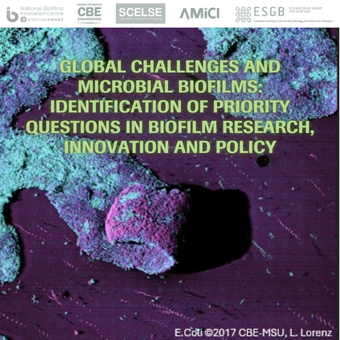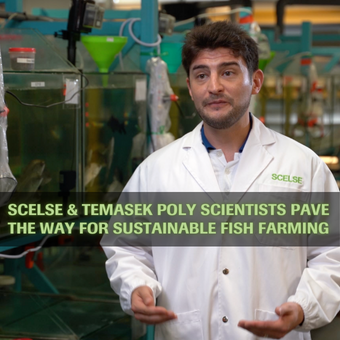Podcast: climate change and the coevolution of infectious diseases
As the global conversation continues to revolve around the COVID-19 pandemic, Channel News Asia gets in on the talk about infectious diseases with a podcast with SCELSE PI A/Prof Yann Boucher, who is also currently at the Saw Swee Hock School of Public Health at the National University of Singapore. With the ongoing climate crisis as a topic of importance, the timely podcast in the news channel’s The Climate Conversations series uncovers the links between climate change and the transmission of diseases in this current environment.

(PHOTO: Guy Bowden)
- In the Media
- 19 Jan 2021
A recent history of climate change and cholera
Tapping in on his research expertise on cholera, A/Prof Boucher recounts several cases of cholera outbreaks that may have been the unexpected consequence of climate change and natural disturbances. One such curious case occured on Vancouver Island in 2018, the likes of which were previously unheard of in the island’s recent history as cholera is rare in Canada. Local authorities attributed the possible cause to the incubation of herring eggs in the seawater that islanders would harvest for consumption. Warm waters linked to climate change, that has been observed in the surrounding waters, could have facilitated the bacterial growth and spread.
Going further back in history, the Haiti earthquake in 2010 also witnessed the explosion of a cholera epidemic six months after the disaster, which A/Prof Yann Boucher also attributes to the different immune systems of the local populace when faced with cholera. In comparison, people around the Ganges Delta develop some antibodies against the bacteria by age 15 and generally have a less severe response to cholera. But as ocean levels rise and flooding occurs, these natural disturbances could have an impact on sewage levels and facilitate the overflow of bacteria into water sources which local populations may depend on. A/Prof Boucher also warns that these increased interactions between seawater and brackish water may lead to new strains of cholera developing.
Coevolution of diseases in a changing world
The transmission of infectious diseases as influenced by climate changes is not just limited to cholera. Warmer temperatures due to global warming may lead to mosquitoes being able to survive in places where they would not usually be and spread dengue and malaria.
“For diseases to have an impact, they have to co-evolve with humans and animals,” says A/Prof Boucher. “There is some degree of coevolution that is required.” As such, humans have less to worry about dormant diseases of the past century awakening. Instead, changes wrought by the human world may influence the development of new variants of diseases, that in turn gain speedy traction in spreading across mobile populations in a globalised world, especially diseases that make the species-jump from animals to humans. This species-jump of diseases is known as zoonosis.
One notable case in history comes from AIDS, which originally was found in primates in Kinchasa in the 1920s, now known as the Democratic Republic of Congo. The coincidence of the population boom and expansion of the city with the species jump of the disease led to its rapid spread across the region, and eventually the world. Another example that A/Prof Boucher brought up is influenza, where he cites that some evidence has been found regarding variants of influenza emerging in Hong Kong due to the mixing of birds in cages, which in turned mixed the viruses together. It is important to note that these bacteria were already there in nature. “The more you mix humans with animals, the more chances [these diseases] can evolve,” A/Prof Boucher sums up. Deforestation, for example, is one man-made disturbance that brings humans in increasing contact with animals.
“For Singapore, I don’t worry too much about new diseases evolving here, because we don’t have such a huge animal population, but what I do worry about is because it’s a travel hub, diseases will get here very quickly even if they evolve anywhere in the world,” says A/Prof Boucher. Bringing the conversation to the coronavirus pandemic, A/Prof Boucher points out that one reason why COVID-19 spread so rapidly within days was also because of how much and fast people were travelling, which was not so common a few hundred years ago.
As such, A/Prof Boucher also professes his interest in an emerging field of study known as One Health. It is an approach that involves looking at the interactions between humans, animals and the environment and is particularly useful when considering and managing infectious diseases. In our contemporary environment and with the climate crisis, clarifying the links between human behaviour, natural and man-made disturbances and pandemics is an important task for the future ahead.









